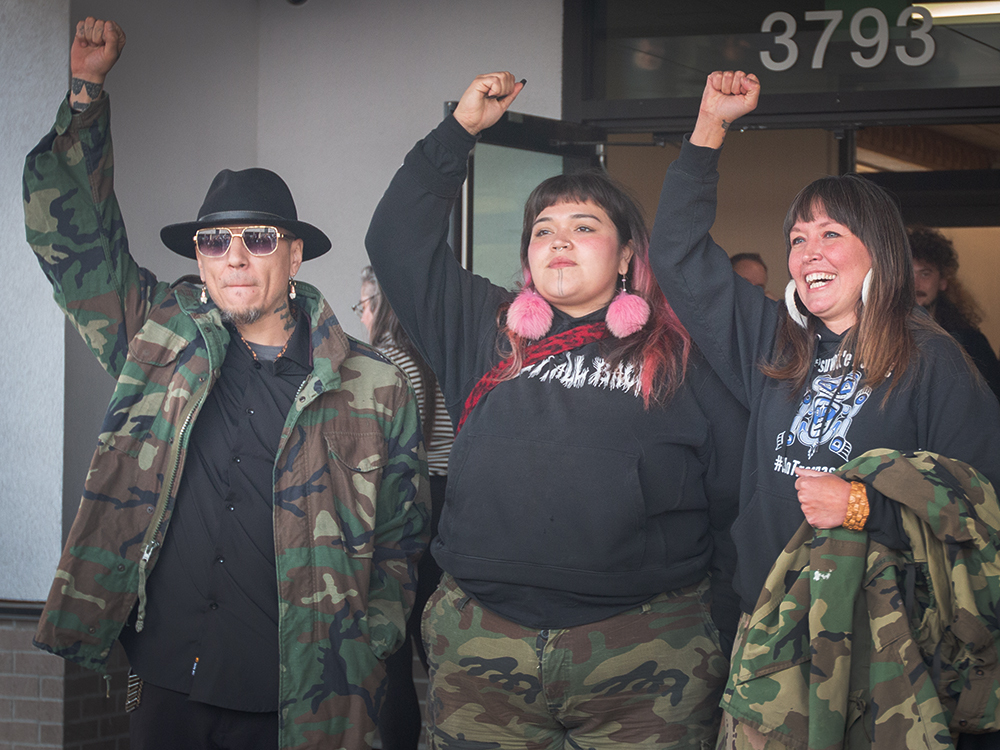‘We have so much knowledge’: Tla’amin consultant hopes to educate on Indigenous women’s history
Chastity Davis-Alphonse is the founder of the company Extending Bridges, through which she has launched a new online learning platform

Tla’amin consultant Chastity Davis-Alphonse has spent her career working to bridge the gap between traditional and colonial perspectives — with a focus on making sure Indigenous women’s voices are heard.
Davis-Alphonse is a member of the Tla’amin Nation outside of Powell River on her mother’s side, and she is married into the Tŝilhqot’in Nation.
She is the founder of the consulting company Extending Bridges, where she works to educate about Indigenous histories in Canada. She recently launched an online learning hub that she calls Deyen — a set of four online educational modules focused on history from an Indigenous women’s lens, dating back to the 1700s.
She says she wants “all Canadians to have access to learn from the original matriarchs of this land.”
“All of that knowledge of our matriarchs and our people is still within us as Indigenous peoples, still within our blood memory, and still on the land. It’s still all there. It’s just invisible. It hasn’t gone anywhere,” Davis-Alphonse says in a statement.
“I would like people to walk away inspired to learn from and with Indigenous women. We have so much knowledge and wisdom we all carry.”
Davis-Alphonse has two degrees from Royal Roads University — a Bachelor of Professional Communications and Master of Arts in Intercultural and International Communications.
In her thesis “Bridging the Gap,” she brought together Indigenous and non-Indigenous leaders in a talking circle format to discuss concepts of land, environment, and time.
“My master’s research and the undergrad leading up to all of that has definitely given me the skills and the curiosity to dig deeper so I’m not just at the surface,” she says.
In discussions between Indigenous communities and industry, for example, there are many differences in perspective — such as one mining executive who stated that mining was “part of nature,” she explains.
“In my experience working in consultation and engagement with Indigenous communities and with industry, we often talk about — for example — land and environment and assume that we’re talking about the same things,” she says.
In reality, the interpretation of what land and environment meant to Indigenous Peoples is generally much different than what it means to resource development companies, she says.
“[Companies] were talking about the land from an economic development perspective,” she says.
“[Whereas for Indigenous Peoples] the Creator placed us on the land to sustain it and to preserve it not only for the current generations but future generations.”
She wants to educate Canadians about the depth of the impacts that decision-makers have had on Indigenous Peoples — but also on the rest of Canada — by offering an invitation for all Canadians to look at things through a different lens and learn from Indigenous voices. She hopes to utilize her education to do this, which is why she created Deyen.
“The whole concept of Deyen is of a similar scope and spirit of wanting to build those bridges between the Indigenous and non-Indigenous communities,” says Davis-Alphonse.
Author
Latest Stories
-
‘Bring her home’: How Buffalo Woman was identified as Ashlee Shingoose
The Anishininew mother as been missing since 2022 — now, her family is one step closer to bringing her home as the Province of Manitoba vows to search for her
-
Sḵwx̱wú7mesh Youth connect to their lands — and relatives — with annual Rez Ride
The Menmen tl’a Sḵwx̱wú7mesh mountain bike team pedals through ancestral villages — guided by Elders, culture and community spirit
-
Land defenders who opposed CGL pipeline avoid jail time as judge acknowledges ‘legacy of colonization’
B.C. Supreme Court sentencing closes a chapter in years-long conflict in Wet’suwet’en territories that led to arrests













